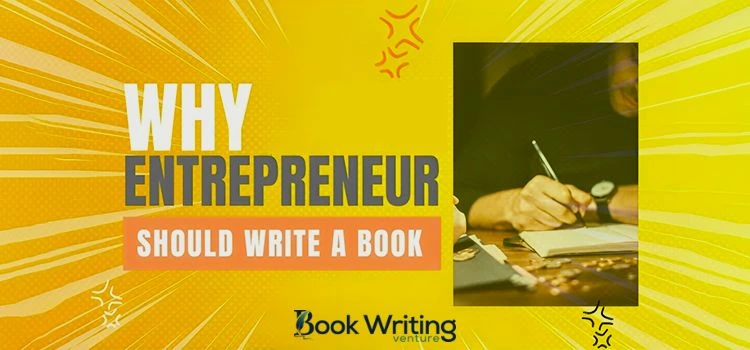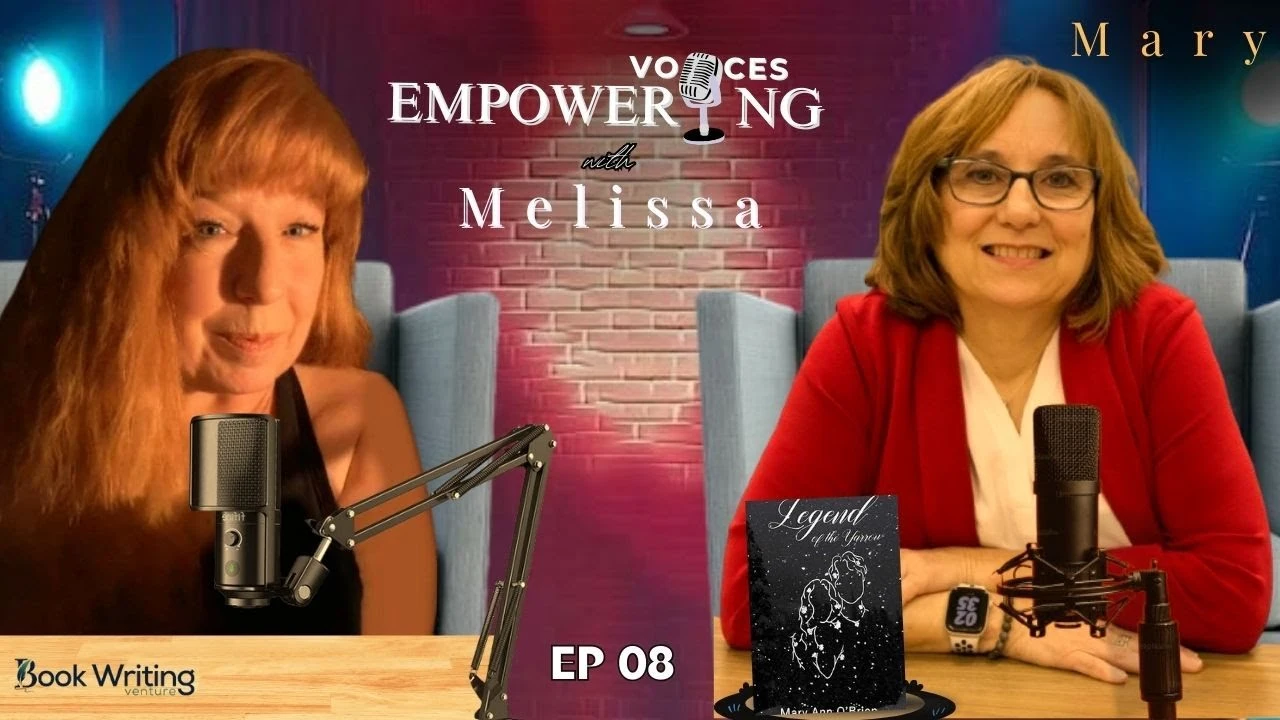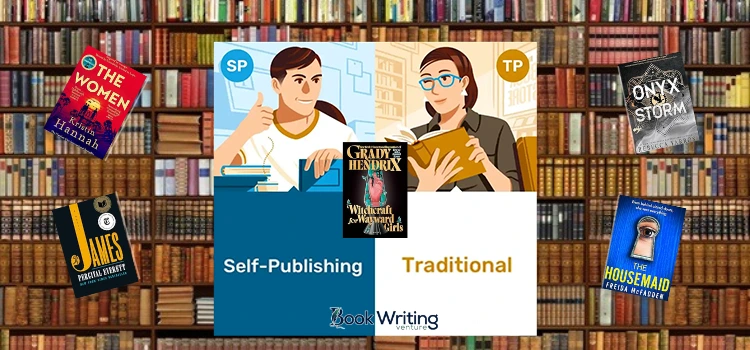Tag: Reader engagement
7 Powerful Places to Use Cliffhangers in Your Book
7 Powerful Places to Use Cliffhangers in Your Book | Book Writing Venture
A well-placed cliffhanger is one of the most powerful storytelling tools an author can use. It keeps readers turning the pages, creates emotional tension, and makes your story unforgettable. In today’s competitive publishing world, where thousands of books are released every day, gripping writing isn’t optional — it’s essential. At Book Writing Venture, we help authors polish their manuscripts, refine their storytelling techniques, and build narratives strong enough to hold a reader’s attention from the first page to the last.
Cliffhangers work because they tap into a simple human instinct: curiosity. When a sentence stops right before a revelation, or when a chapter ends with something shocking, the reader needs to know what happens next. That urge is what moves them forward.
Below are the seven best places to use a cliffhanger, supported by real-world examples and writing insights to help you strengthen your book.
1. At the End of a Chapter
Ending a chapter with a cliffhanger is one of the oldest and most effective storytelling strategies. When a chapter ends with a twist or a question, readers don’t close the book — they flip the page. Many bestselling novels, such as The Da Vinci Code by Dan Brown, use chapter-end cliffhangers to keep the pace fast.
2. Before a Major Reveal
If your character is about to discover a secret, interrupting the moment can raise tension. This technique builds anticipation and makes the reveal more satisfying when it finally happens. The popular Gone Girl by Gillian Flynn masterfully uses this method, keeping readers guessing until the final chapters.
3. After a Character Makes a Big Decision
When a character chooses something life-changing, you can pause the story before the consequences unfold. This keeps readers emotionally invested. For example, when a hero decides to confront an enemy, ending the scene there can create powerful suspense.
4. In the Middle of High-Tension Moments
A cliffhanger during a chase, confrontation, or argument keeps the energy high. Stopping at the peak of conflict makes readers desperate for resolution. The Hunger Games uses this approach often, especially during action-heavy scenes.
5. When Introducing a New Mystery
A strange letter, a sudden visitor, or a cryptic clue can instantly pull readers deeper into the story. When you end a scene right after something confusing or unexpected happens, readers push forward to understand the mystery.
6. At Major Turning Points in the Plot
A betrayal, a surprise reveal, a shocking comeback — these moments are perfect for cliffhangers. When the direction of your story shifts, stopping the scene at the moment of change creates momentum. This is one of the reasons thrillers, fantasy novels, and romance series use cliffhangers so effectively.
7. At the End of the Book (For a Series)
A series cliffhanger encourages readers to continue the journey. It doesn’t have to be dramatic — sometimes a subtle hint is enough. The key is to leave a door open while still giving the book a satisfying end. Many bestselling series, such as Harry Potter, use light cliffhangers to guide readers into the next installment.
Why Cliffhangers Matter for Modern Authors
A well-written cliffhanger does more than push readers forward — it builds loyalty. Today’s readers have endless options, so maintaining attention is a skill. Cliffhangers create momentum, which increases reading time, boosts engagement, and improves your book’s overall performance on publishing platforms.
At Book Writing Venture, the best publishing firm in Florida, help authors create strong pacing, compelling scene transitions, and emotional structure that keeps readers hooked. Whether you’re writing fiction, memoir, fantasy, or nonfiction with narrative elements, cliffhangers can give your story the spark it needs to stand out.
With professional editing, proofreading, structural guidance, and publishing support, your book can rise above the crowd and gain the visibility it deserves.
If you want readers to finish your book and immediately look for your next one, cliffhangers can become your strongest ally.
The Real Truth About Book Marketing and Promotion
The Real Truth About Book Marketing and Promotion | Book Writing Venture
Many new authors enter the publishing world with high hopes. They often believe that once their book is written and published, readers will naturally discover it, love it, and buy it. Some even imagine that the book will act as a retirement plan or a source of long-term passive income. But the reality is very different. Publishing a book does not guarantee attention, sales, or recognition. Without book marketing and promotion, even a brilliant book can disappear without making the impact it deserves.
At Book Writing Venture, we see this every day. Authors pour their hearts into beautiful stories and powerful messages, yet their books remain unseen simply because readers never knew they existed. In a world where thousands of books release every single day, visibility is not optional. It is essential.
Why Writing the Book Is Only the Beginning
Finishing the manuscript is a huge achievement, but it is only the first step. What happens after publishing determines the true future of your book. Marketing introduces your book to the world. It acts as the bridge between your story and the readers who might love it.
Even the most iconic books did not rise to fame by accident. They were supported by strong promotional efforts that helped them reach the right audience.
How Famous Books Became Bestsellers: Real Examples
Several global bestsellers succeeded because they combined great storytelling with powerful marketing.
Harry Potter grew into a worldwide phenomenon because Bloomsbury invested heavily in school outreach, early reviews, media coverage, and long-term publicity.
The Da Vinci Code exploded internationally through a massive marketing campaign, strategic distribution, and constant media attention.
The Hunger Games became a hit even before the movie deal because of targeted advertising, partnerships, and promotions designed to reach young readers.
None of these books became bestsellers by chance. Their success was built through strong strategy and consistent exposure.
Why Readers Can’t Love a Book They Don’t Know Exists
Many authors believe that great writing will automatically rise on its own. But readers cannot support a book they never see. Marketing opens the door and introduces your book to the world. Once readers discover it, the quality of your writing helps it grow.
Word of mouth remains one of the strongest forces in book success. When a reader loves a book and recommends it to someone else, it creates a chain that money can’t buy. But this chain starts only when the book reaches enough readers in the first place. Without promotion, that moment never comes.
The Hidden Reason So Many Books Get Low Ratings
A huge number of online books receive just one or two stars, or no reviews at all. This usually doesn’t happen because the book is weak. Many times, the author simply didn’t invest in marketing. A book without readers cannot generate reviews, and without reviews, it cannot attract more readers. It stays buried under thousands of other titles that focused on visibility.
Good marketing gives your book a fair chance. It helps your book appear in searches, recommended sections, genre lists, influencer feeds, and promotional categories where new readers can discover it.
How Proper Marketing Helps a Book Grow
Marketing isn’t about luck. It is about strategy. When a book is marketed properly, people start talking about it. It shows up on Amazon, gains early reviews, reaches bloggers, appears in ads, and slowly finds its audience. This is how momentum begins.
At Book Writing Venture, we guide authors step by step through full-spectrum promotion. We help with Amazon optimization, targeted advertising, press releases, influencer partnerships, review planning, promotional videos, and long-term author branding. In today’s digital world, authors who market their work have a far higher chance of success than those who leave everything to chance.
Your Book’s Growth Is Like a Wave
Imagine the journey of your book like a wave that expands outward. It starts small. Maybe friends, early readers, or your first social media posts notice it. With the right marketing, the wave grows wider. New readers discover it through blogs, interviews, ads, recommended lists, or even a simple repost from someone who enjoyed your work.
Marketing brings your book into the light.
Quality keeps it there.
The Real Reason Books Fail: Without Book Marketing and Promotion
Most authors don’t fail because they wrote a weak book. They fail because their book never reached enough readers to prove its worth. Even an extraordinary book cannot succeed if no one knows it exists. Meanwhile, a well-promoted book can outperform a stronger story simply because it reached more people.
Your book deserves visibility. It deserves to be read, shared, discussed, and recommended. With the right marketing and the right strategy, your book can reach readers who will cherish it.
At Book Writing Venture, we don’t just help authors publish.
We help their stories reach the world.
Why entrepreneur should write a book
Why every entrepreneur should write a book? The answer is simple, credibility, visibility, and impact. Entrepreneurs solve problems and offer value. A book extends that impact beyond customers. It positions an entrepreneur as an expert, strengthens their brand, and opens new opportunities.
People trust authors. When someone writes a book, they showcase their knowledge and experience. A book proves that the entrepreneur understands their industry. Readers see them as a leader, not just a business owner. Because of this, entrepreneurs who write books often gain more respect and influence.
Reaching a wider audience
A book allows entrepreneurs to share their journeys, lessons, and insights. More importantly, it helps them connect with a wider audience. Not everyone can meet a business leader, but they can read their book. By writing one, entrepreneurs share their wisdom with people worldwide.
Books also have a lasting impact. Unlike a social media post or a speech, a book stays relevant for years. Readers pass it on to others, and new generations learn from it. Entrepreneurs who write books leave a legacy that continues to inspire and educate.
A book is a strong marketing tool
Writing a book is not just about sharing knowledge. It is also a great way to market a business. Entrepreneurs explain their work to clients, investors, and the media. But a book can do that job for them. Instead of repeating their story, they can hand someone a book that tells it all.
Books also open doors to new business opportunities. They attract clients who trust the author’s expertise. They grab the attention of investors looking for experts in their fields. Media outlets love interviewing authors because books add credibility. As a result, writing a book increases exposure and builds a stronger personal brand.
Long-term benefits of writing a book
Why Every Entrepreneur Should Write a Book becomes even clearer when thinking about long-term benefits. Books generate passive income. They expand professional networks. They increase speaking opportunities. Also, they give an edge in competitive industries.
Authors often get invited to events as speakers. They build relationships with other professionals. They get featured in podcasts, interviews, and conferences. All these things help them grow their business while sharing their knowledge. Writing a book is not just about today, it is an investment for the future.
How Book Writing Venture can help
Many entrepreneurs struggle with writing. They have great ideas but lack the time or experience to put them into words. This is where Book Writing Venture steps in.
Our team of skilled writers, editors, and publishing experts helps entrepreneurs craft their books. We assist in organizing ideas, structuring content, ghostwriting, editing, and publishing. Whether they choose self-publishing or traditional publishing, we guide them through the entire process.
With Book Writing Venture, entrepreneurs don’t have to write alone. We help bring their vision to life. We ensure their book represents their expertise in the best way possible.
“If you want to be a leader in your industry, write a book. If you want to leave a legacy, write a book. If you want to change lives, write a book.“
Magic of love with Mary Ann O’Brien on Empowering Voices
Welcome to Episode 08 of Empowering Voices, brought to you by Book Writing Venture! This episode highlights the talented Mary Ann O’Brien, author of the enchanting novel Legend of the Yarrow: First Snow. From the start, Mary Ann’s story pulls readers into a world where love, destiny, and timeless legends come alive. Let’s explore the inspiration behind this magical tale and see how storytelling connects us all.
The creative journey of Mary Ann O’Brien
Mary Ann passionately and honestly shares her creative journey. She explains how she crafted the heartwarming characters of Grace, JT, and the mysterious journal. Through their adventures, readers feel the strength of resilience and the importance of destiny. Her story is more than a tale—it’s an invitation to embrace new beginnings and find magic in connections.
Themes that touch the heart
In Legend of the Yarrow: First Snow, Mary Ann weaves themes of love, resilience, and the beauty of fate, reminding us of the power of storytelling. Host Melissa M. Guccione, an insightful associate of Book Writing Venture, guides the conversation with thought-provoking questions. Her engaging style ensures that this episode inspires and captivates listeners.
How storytelling inspires connection
Episode 08 of Empowering Voices celebrates the timeless strength of storytelling. It shows how words create bonds and help us find purpose. By exploring Mary Ann’s world, you’ll see how stories bring hope and encourage belief in destiny.
Grab your copy and explore more
Be sure to get your copy of Legend of the Yarrow: First Snow here. Visit Book Writing Venture for more inspiration and resources.
Join the conversation
Dive into Mary Ann’s world today and let her words inspire you. Don’t miss out on this heartfelt episode that celebrates love, destiny, and new beginnings. Please share your favorite moments or key takeaways in the comments below, we can’t wait to hear from you!
Why self-publishing is better than traditional publishing
Why self-publishing is better than traditional publishing
Why self-publishing is better than traditional publishing, this question arise when authors are ready to share their stories, they must choose between traditional and self-publishing. While both have pros and cons, self-publishing often stands out. It gives authors control, faster results, and higher earnings.
Full creative control
With self-publishing, authors control every detail of their book. They decide the cover, content, and marketing. Traditional publishing often limits an author’s input to fit the publisher’s vision.
Better earnings
Self-published authors keep 60-70% of their book’s revenue. On platforms like Amazon, this can mean much higher profits. Traditional publishers usually pay only 10-15% royalties, and that is after they recover their costs.
Quick publishing
Once a manuscript is ready, self-publishing platforms can make the book available in days. Traditional publishing, on the other hand, can take years due to submission, editing, and distribution delays.
Building reader connections
Self-published authors connect with their readers through social media and newsletters. These direct connections build loyalty and boost sales. Traditional publishers rarely offer such opportunities.
Global access
Digital self-publishing platforms let books reach readers worldwide instantly. Traditional publishing depends on slower physical distribution networks.
Self-published bestsellers
- Kristin Hannah – The Women
- A healing guide that connected with millions. Sarah earned 70% royalties, far surpassing traditionally published authors.
- Grady Hendrix – Witchcraft for Wayward Girls
- Grady Hendrix’s Witchcraft for Wayward Girls topped the hardcover fiction category in 2024. The novel captivated readers with its unique blend of horror and humor, solidifying Hendrix’s place among contemporary bestselling authors. Grady’s ROI exceeded expectations.
- Percival Everett – James
- Percival Everett’s James secured a prominent position on bestseller lists in 2024. This novel offers a brilliant, action-packed reimagining of Adventures of Huckleberry Finn, told from the enslaved Jim’s point of view. Percival’s ROI was among the highest.
- Rebecca Yarros – Onyx Storm
- Rebecca Yarros’s Onyx Storm, the third installment in her “Empyrean” romance series, achieved significant success in 2024. The book topped bestseller lists and sold over 300,000 copies in its first week at Barnes & Noble with strong earnings due to targeted marketing.
- Freida McFadden – The Housemaidant
- Freida McFadden’s The Housemaid became a bestseller in 2024. This gripping psychological thriller follows a live-in housemaid whose seemingly perfect job hides dark secrets, keeping readers on edge until the final page. Freida had the highest ROI in Psychological Thrillers (Books).
Why self-publishing wins
Self-publishing empowers authors. It offers control, higher earnings, and faster publishing. While traditional publishing brings prestige, it often lacks revenue and freedom.
At Book Writing Venture, we help authors succeed in self-publishing. From editing to marketing, we ensure your book reaches its audience. Share your story with the world, on your terms.
How to build your author brand in 10 easy steps
How to build your author brand in 10 easy steps
To discover how to build your author brand is crucial in today’s crowded book market. In fact, a survey by BookBaby found that 74% of authors who focused on branding saw higher engagement with readers. To help you learn how to build your author brand effectively, this guide provides 10 actionable steps supported by real-life examples and data.
Define your unique voice
Think about J.K. Rowling, her magical worlds and relatable characters have made her unforgettable. Similarly, identify what sets your writing apart. Are you humorous, inspiring, or thought-provoking? Knowing your voice helps readers connect with you on a deeper level.
Know your target audience
According to a Nielsen study, books targeting specific demographics sell 35% more copies. For example, if you write young adult fiction, connect with teenagers through relatable content and topics they care about.
Create a professional author website
A professional website acts as your online headquarters. Authors like Brandon Sanderson have leveraged their sites to share updates and connect with fans. Include your books, biography, blog, and contact information to make a lasting impression.
Develop a consistent social media presence
In 2022, Pew Research reported that 72% of U.S. adults used social media. Pick platforms like Instagram or Twitter based on your audience’s preferences. For instance, thriller author Karin Slaughter often shares behind-the-scenes content to keep her followers engaged.
Design a memorable author logo
A logo reinforces your brand visually. Take Nora Roberts’ initials-based logo—it’s simple yet iconic. Collaborate with a designer to create something unique and recognizable.
Write a compelling author bio
Your bio is your pitch to readers. For instance, Neil Gaiman’s bio highlights his genre expertise and whimsical style. Include your accomplishments, writing interests, and a personal touch to captivate readers.
Network with fellow authors
Building relationships within the writing community is invaluable. For example, authors who participate in anthology projects often expand their readership through shared audiences. Attend workshops, webinars, or literary events to grow your network.
Engage with your readers
Interacting with readers fosters loyalty. Colleen Hoover’s success can be attributed in part to her active engagement on platforms like TikTok. Respond to comments, host Q&A sessions, and join book clubs to deepen connections.
Invest in high-quality book covers
According to Reedsy, a striking cover can increase sales by up to 50%. Consider Veronica Roth’s Divergent series—its bold and symbolic covers draw immediate attention. Collaborate with professionals to create covers that reflect your brand.
Promote consistently
Consistency is key. Authors who update their blogs or newsletters regularly see better audience retention. For instance, Stephen King’s frequent social media updates keep fans engaged and informed.
How Book Writing Venture can help you build your author brand
Book Writing Venture can help you make your author brand visible to the relevant audience. With a team of professionals who have years of experience in the book publishing industry, they offer tailored solutions to ensure your work reaches the right readers and stands out in the competitive market.
By incorporating these strategies, you’ll learn how to build your author brand effectively. Remember, branding is an ongoing process that evolves as you grow. With persistence and creativity, you can create a lasting impression in the literary world.













